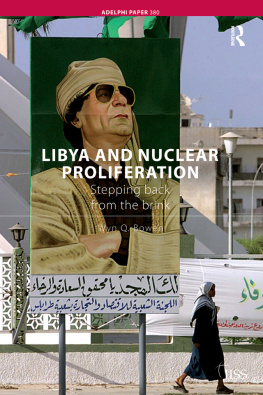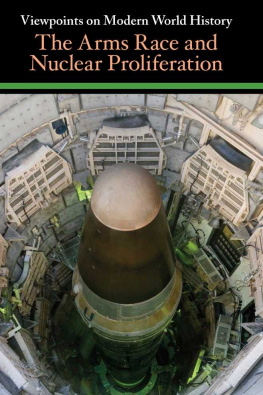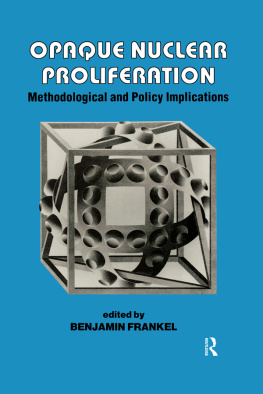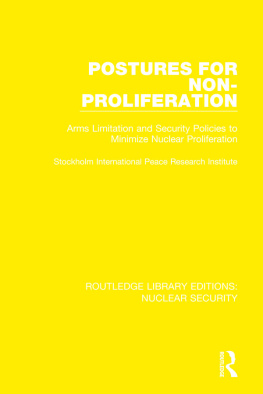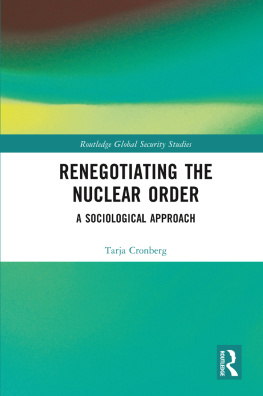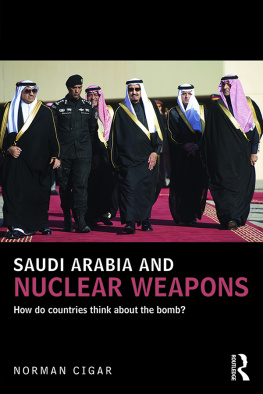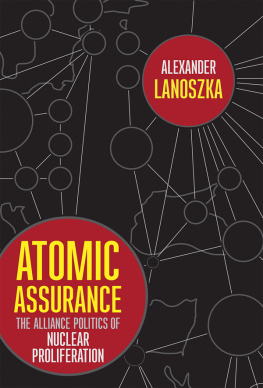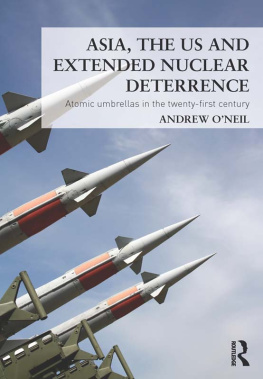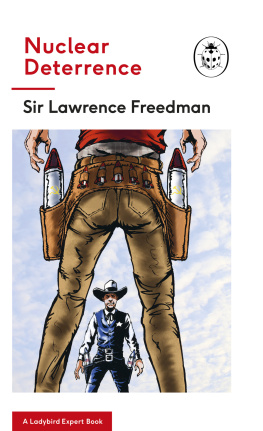Joining the Non-Proliferation Treaty
What were the calculations made by the US and its major allies in the 1960s when they faced the signing of the Non-Proliferation Treaty (NPT)? These were all states with the technological and financial capabilities to develop and possess nuclear weapons should they wish to do so. In the end, only the United Kingdom and France became nuclear weapon states. Eventually, all of them joined the non-proliferation regime.
Leading American, British, Canadian, French, German and Japanese scholars consider key questions that faced the signatories to the NPT:
- How imperative was nuclear deterrence in facing the perceived threat to their country?
- How reliable did they think the US extended deterrence was, and how costly would an independent deterrent be both financially and politically?
- Was there a regional option?
- How much future was there in the civilian nuclear energy sector for their country, and what role would the NPT play in this area?
- What capabilities needed to be preserved for the countrys future and how could this be made compatible with the NPT?
- What were the determining factors of deciding whether to join the NPT?
John Baylis is Emeritus Professor of Politics and International Relations, and a former Pro-Vice Chancellor, at Swansea University, UK.
Yoko Iwama is Professor of International Relations at the National Graduate Research Institute for Policy Studies (GRIPS), Tokyo, Japan.
Routledge Advances in International Relations and Global Politics
Order Wars and Floating Balance
How the Rising Powers Are Reshaping Our Worldview in the Twenty-First Century
Andreas Herberg-Rothe and Key-young Son
The Political Psychology of Attitudes towards the West
An Empirical Analysis from Tamil Nadu
Bjrn Goldstein
Resistance, Power, and Conceptions of Political Order in Islamist Organizations
Comparing Hezbollah and Hamas
Maren Koss
Christianity and American State Violence in Iraq
Priestly or Prophetic?
Christopher A. Morrissey
Small States and Hegemonic Competition in Southeast Asia
Pursuing Autonomy, Security and Development amid Great Power Politics
Chih-Mao Tang
Empires of Knowledge in International Relations
Education and Science as Sources of Power for the State
Anna Wojciuk
Joining the Non-Proliferation Treaty
Deterrence, Non-Proliferation and the American Alliance
Edited by John Baylis and Yoko Iwama
For information about the series: www.routledge.com/Routledge-Advances-in-International-Relations-and-Global-Politics/book-series/IRGP
First published 2019
by Routledge
2 Park Square, Milton Park, Abingdon, Oxon OX14 4RN
and by Routledge
711 Third Avenue, New York, NY 10017
Routledge is an imprint of the Taylor & Francis Group, an informa business
2019 selection and editorial matter, John Baylis and Yoko Iwama; individual chapters, the contributors
The right of John Baylis and Yoko Iwama to be identified as the authors of the editorial material, and of the authors for their individual chapters, has been asserted in accordance with sections 77 and 78 of the Copyright, Designs and Patents Act 1988.
All rights reserved. No part of this book may be reprinted or reproduced or utilised in any form or by any electronic, mechanical, or other means, now known or hereafter invented, including photocopying and recording, or in any information storage or retrieval system, without permission in writing from the publishers.
Trademark notice: Product or corporate names may be trademarks or registered trademarks, and are used only for identification and explanation without intent to infringe.
British Library Cataloguing-in-Publication Data
A catalogue record for this book is available from the British Library
Library of Congress Cataloging-in-Publication Data
A catalog record for this book has been requested
ISBN: 978-1-138-57145-7 (hbk)
ISBN: 978-0-203-70280-2 (ebk)
Typeset in Galliard
by Apex CoVantage, LLC
John Baylis taught at Liverpool, Aberystwyth and Swansea Universities. At Swansea he was Head of the Department of Politics and International Relations and Pro-Vice Chancellor until he retired in 2008. He is the author of more than twenty books and over a hundred articles in scholarly journals. His latest book, Wales and the Bomb: The Role of Welsh Scientists and Engineers in the Development of British Nuclear Weapons, will be published by the University of Wales Press in 2019. He is a Fellow of the Learned Society of Wales, the Royal Historical Society and the Academy of Social Sciences.
William Burr is a Senior Analyst at the National Security Archive, George Washington University, where he directs its nuclear security documentation project and edits the Nuclear Vault. He has published essays on Cold War history and US nuclear history in Diplomatic History, International History Review, The Journal of Cold War Studies, Cold War History, and The Bulletin of the Atomic Scientists, as well as in edited volumes. In 1999, The New Press (New York) published his document reader, The Kissinger Transcripts: The Top-Secret Talks with Beijing and Moscow. In 2015 The University Press of Kansas published Nixons Nuclear Specter: The Secret Alert of 1969, Madman Diplomacy, and the Vietnam War, which he co-wrote with Jeffrey P. Kimball.
Yoko Iwama is Professor of International Relations at the National Graduate Institute for Policy Studies (GRIPS) in Tokyo. Graduated from Kyoto University, she served as Special Assistant of the Japanese Embassy in Germany before joining GRIPS. Her specialties include international security and diplomatic history with emphasis on postwar Germany. She has served on numerous government committees in the area of defense and security, including the Council on Reconstruction of a Legal Basis for Security. She is currently the project leader of the research project The Nuclear Non-Proliferation Regime and the Redefinition of the Security Policies at GRIPS, supported by JSPS KAKENHI Grant Nr. JP17H00972.
Akira Kurosaki is Associate Professor at Fukushima University. He specialises in International Relations and International History and received his Ph.D. from Tohoku University. He was a Fellow at the Woodrow Wilson International Center for Scholars in 20172018. He has written extensively on the history of Japans nuclear policy, Japan-US relations, and arms control and disarmament. He is the author of Kakuheiki to Nichi-Bei kankei: Amerika no kaku fukakusan gaiko to Nihon no sentaku 19601976 [Nuclear Weapons and Japan-US Relations: US Nuclear Non-proliferation Diplomacy and Japans Choice 19601976]


